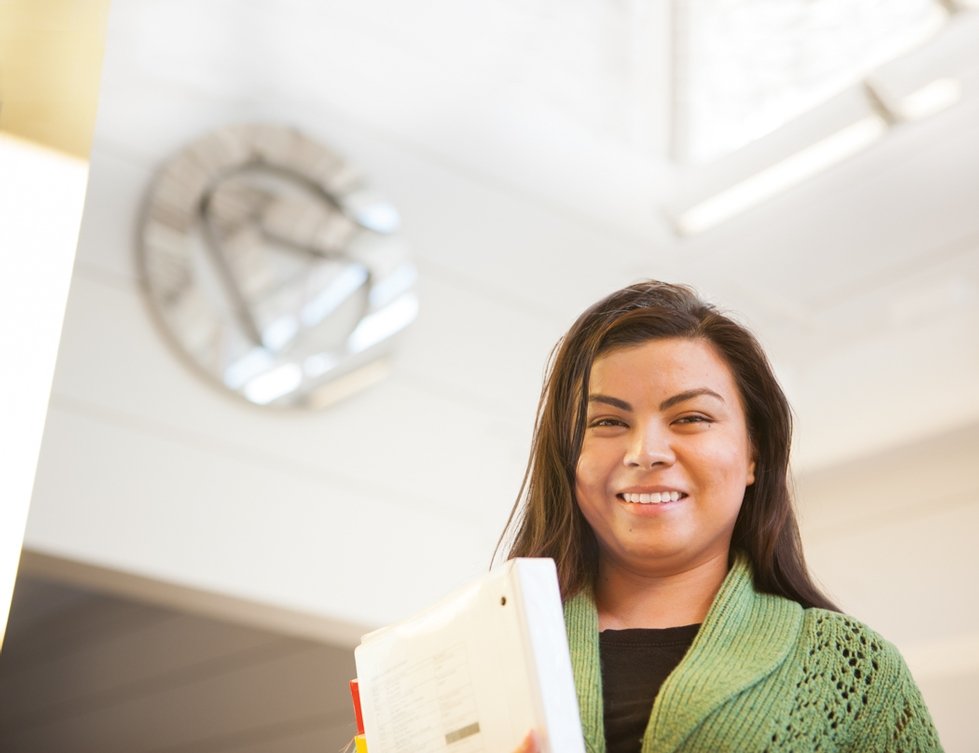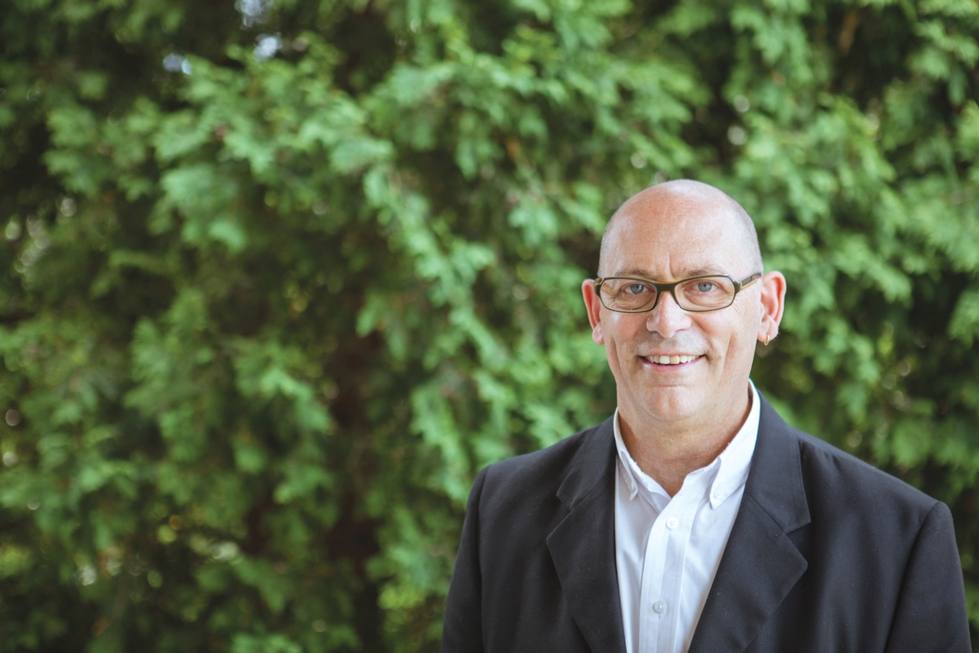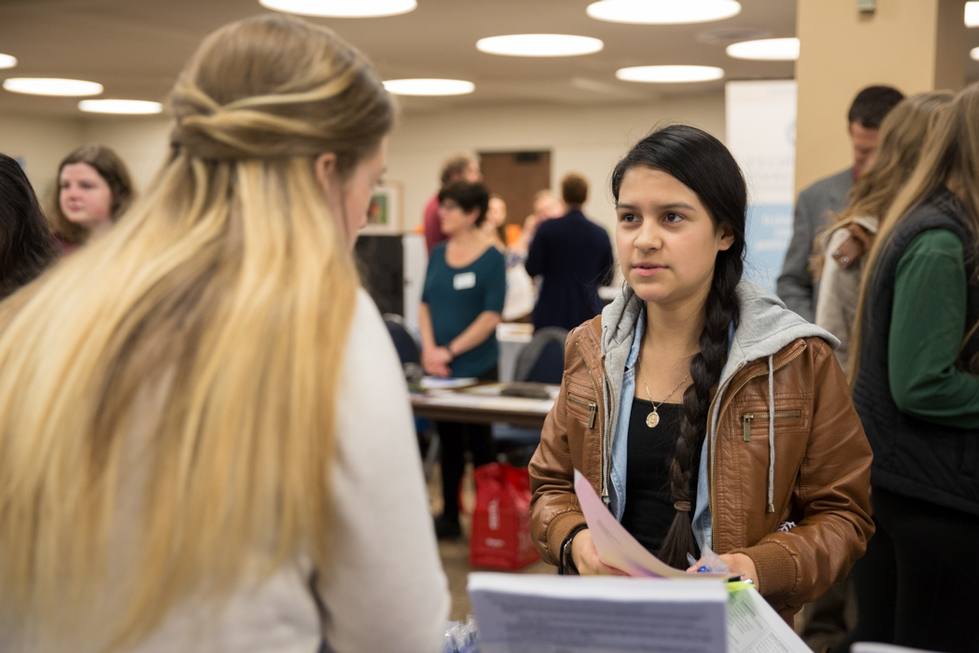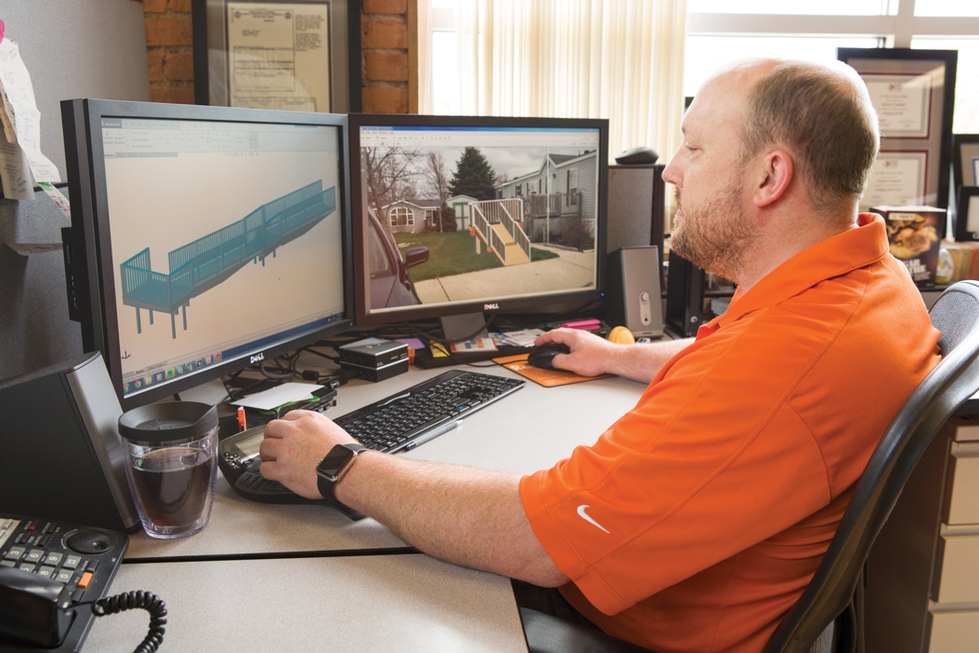Meijer Campus
Connecting Grand Valley to the lakeshore
Gabriela Diaz may be in her first year at Grand Valley, but she carries the resume of an experienced, veteran student.
She is a student worker, member of the Latino Student Union and the Criminal Justice Students Association, and a volunteer for GVSU Pals, a student organization that mentors area at-risk youth.
Diaz works at the Meijer Campus in Holland, staffing the front reception desk, scheduling appointments and answering phone calls. She transferred to Grand Valley in May after earning an associate’s degree from Grand Rapids Community College.
Diaz, a Holland resident, took many of her GRCC classes at the Meijer Campus, and she credits that campus — its location and its people — to getting her off to a solid start during her first year at Grand Valley.
“I enjoy being able to work in Holland for Grand Valley,” Diaz said. “I enjoy this campus. I wanted to have a college experience without living on the Allendale Campus.”
Presence on the lakeshore
In the late 1990s, Meijer Inc. donated land to Grand Valley near the superstore’s Holland location on 16th Street. The university constructed a campus on Waverly Street that would house its multiple continuing education programs that had been offered in Ottawa County for years.
The campus was dedicated in 1998. Since that time, the Meijer Campus has grown perhaps not in physical size but exponentially in terms of responding to community educational needs, providing resources and services and serving as a partner on many Holland initiatives.
Simone Jonaitis, executive director of the Center for Adult and Continuing Studies, said the Meijer Campus, like Grand Valley’s other regional centers, adapts and connects with the community it serves. The university has centers in Muskegon, Traverse City and Detroit.

Gabriela Diaz is pictured at the Meijer Campus in Holland.
photo by Elizabeth Lienau
“The Meijer Campus was originally created to provide education and opportunities for that community,” Jonaitis said.
“The economy and Grand Valley have changed since then, which means we have to become more adept at connecting the community with the institution.”
Being at the table with community leaders is important. Lisa Miller, director of the Meijer Campus, said she and other staff members routinely serve on nonprofit boards or assist with community initiatives. “We’re reading, listening to others and aware of what’s going on in the community,” Miller said. “We used to ask to be invited on committees or to help with projects, now they’re calling and asking us.”
Lena Del Real is the executive director of Latin Americans United for Progress, a long-standing Holland nonprofit organization that serves as a portal and provides resources for the lakeshore’s Hispanic and Latino communities. The Meijer Campus hosts regular college visits for LAUP youth groups, and sponsors several of its annual events and programs.

Now near the end of the accelerated degree program, Ken Freestone has made more connections and collaborated on an innovative food distribution program for the Holland Farmers Market.
photo by Bri Luginbill
Del Real said Holland’s Latino community sees the campus as a vital part of its city. “Most Latinos tend to stay close to their family as long as possible and having a Grand Valley campus here in Holland allows that to occur,” she said.
Diaz fits that role. Her parents are both from Honduras but they met in Holland; she lives at home with them and three sisters.
While attending GRCC, Diaz worked as a student employee at the college’s Lakeshore Campus, doing many of the same tasks she does now at the Meijer Campus.
“I’m glad I can continue being a student employee because I didn’t want to take out a lot of loans,” she said.
College pipeline
The campus also hosts Ottawa County high school juniors and seniors who are enrolled in Muskegon Community College courses through the Early College Program. Offered by the Ottawa Area Intermediate School District, the free program provides opportunities for students to take a full schedule of college classes in their 13th year of school and graduate with both a high school diploma and associate’s degree.
Susan Tater, a program consultant, said more than 200 students participate. “Having the students take their classes at the Meijer Campus is a great way for Grand Valley to serve the southern part of the county,” she said.
Tater and other staff members from the OAISD brought about 50 Early College students to Allendale in November for Grand Valley’s Majors Fair, an event that allows all students to explore majors by visiting tables hosted by academic departments.

Wendy Estrada is enrolled in the Early College program and takes courses at the Meijer Campus.
photo by Jess Weal
Wendy Estrada, a student at Holland Early College, was excited to be on the Allendale Campus for the fair. She and others take school buses to the Meijer Campus for MCC classes. Estrada said that although juggling college and high school classes can be daunting, knowing the finish line will be an associate’s degree makes the work worthwhile.
“It’s a free program and provides a good opportunity to get college experience,” Estrada said. “It wouldn’t be as scary as going to college right after high school.”
Jason Pasatta runs the OAISD programs, like IChallengeU and futurePREP Academy, that help prepare high school students for college success. He said the guidance Meijer Campus staff members provide to students mirrors the district’s mission of college preparedness.
“They continually help students in the Early College Program make meaningful connections between the associate’s degree that they are pursuing and possible four-year university degree they could attain afterward,” Pasatta said.
Degree completion
From early college to transfer matriculation to degree completion, the campus offers a liberal studies degree program, courses in education and business, and hybrid and certificate programs.
By listening to community needs, a new accelerated degree program was established at the Pew Grand Rapids Campus in 2014 and at the Meijer Campus in 2015. The Liberal Studies Leadership Program is geared toward working adults who have about 72 credits. By taking one five-week course at a time, participants will earn bachelor’s degrees in about 19 months.
Jonaitis said the program combines community outreach, liberal studies theory with practical applications.
“Businesses wanted professional development for their employees and this program gives people the skills they need to advance in jobs or pursue new careers,” she said.
Ken Freestone started the accelerated degree program last January. An independent consultant who lives in Holland, Freestone is well-connected to the community and has worked for the Macatawa Greenway Project and the West Michigan Strategic Alliance Green Infrastructure; he has also worked for Davenport University and co-facilitated a few classes at Grand Valley. Freestone currently consults with the Institute of Water Research at Michigan State University.
At 59, Freestone found himself happy with his career but not satisfied. As he applied for new positions, but “wasn’t getting call-backs or interviews,” he said he reconsidered earning a bachelor’s degree. “I thought I better check earning a degree off of my list,” he said.

While taking a liberal studies course, Richard Campbell helped create a 3D blueprint design for a ramp that eases the burden for people who need wheelchair accommodations at their home.
photo by Amanda Pitts
After meeting with an advisor at the Meijer Campus, Freestone found it would take about six years as a part-time student to finish his degree. He tabled the idea, then said “as if it was made for me,” he received an email from Miller about the accelerated degree program.
Now near the end of the program, Freestone has made more connections and collaborated on an innovative food distribution program for the Holland Farmers Market in which “rounded-up dollars” could be used to buy fresh produce for food banks.
“At the farmers market, you make a purchase and you might agree to round up to the next dollar,” Freestone said. “The extra money collected will purchase produce from the farmers and that day be distributed to food pantries.”
Each member of the accelerated degree cohort connects with a community partner, as Freestone did with the Holland Farmers Market. Richard Campbell, a product development engineer for Disher Design and Development, linked his expertise and his company’s resources to the Disability Network-Lakeshore and helped devise a 3D Computer-Aided Design and blueprint of a wheelchair ramp.
The blueprint meets all Americans with Disabilities Act and Michigan residential building codes, and eases the burden for people who need to add wheelchair accommodations to their home. “The CAD model allows us to easily lay out a wheelchair ramp assisting someone with limited mobility and simplifies the process for them to acquire a building permit before installation,” Campbell said.
For his work, DNL nominated Campbell for a scholarship that paid his tuition to attend the West Coast Leadership Program, a West Coast Chamber of Commerce initiative. “None of this would be possible if I hadn’t been in Grand Valley’s leadership program,” Campbell said.
The Green Team
Freestone was the host of a November event, “America Recycles Day,” sponsored by the Meijer Campus, City of Holland and other partners. About 75 people attended and learned where their recyclables go after initial disposal.
It was the third annual America Recycles Day event, but sustainability at the Meijer Campus has roots that date back to 2008 when the Green Team was formally established. Team members are students, faculty and staff members, and community members who meet regularly to plan programs or discuss new ideas.
Miller said the team has seen success because its members bring expertise from their personal lives to the campus, which also sees benefits.
An example is Anne Marie Fauvel, affiliate faculty of liberal studies. Fauvel raises bees at her home and teaches a course on how honeybees impact society. She broached the idea of maintaining an apiary (a collection of beehives) at the Meijer Campus and, in 2012, it became a reality. Fauvel said it was an easy sell, given the campus’ commitment to sustainability and the fact that the Holland Area Beekeepers Association holds regular meetings at the campus. One of the hives moved to the Allendale Campus in 2014 and is under the care of the Sustainable Agriculture Project.
Campus partners
Because of the campus’ deep community connections and resources, many university departments have collaborated with staff members there to host events in Holland.
The Community Reading Project, a collective book that is discussed throughout the year by students, faculty and staff, has traditionally opened its author visits to community members with a stop in Holland at the Herrick District Library.
Sara DeVries, public relations manager for the library, said the collaboration with Grand Valley affords the Holland library an opportunity to host a national author. (In April, Claudia Rankine will visit Holland and Allendale for presentations about "Citizen: An American Lyric," this year’s CRP selection.)
Grand Valley’s Kutsche Office of Local History teamed with the Meijer Campus, City of Holland, Herrick District Library, LAUP and St. Francis de Sales Catholic Church to collect oral histories of Holland’s Latino residents. Stories and portraits for “Nuestra Comunidad Hispana” were completed last summer and displayed at separate exhibitions in Allendale and Holland last fall.
Jonaitis said campus staff members work to meet the needs of multiple constituents, which is not always an easy job.
“We want to be integral members of our community, and that means that we’re interdisciplinary, responsive and adaptive,” she said. “We take the time to develop programs and mostly listen to what the needs are.”
